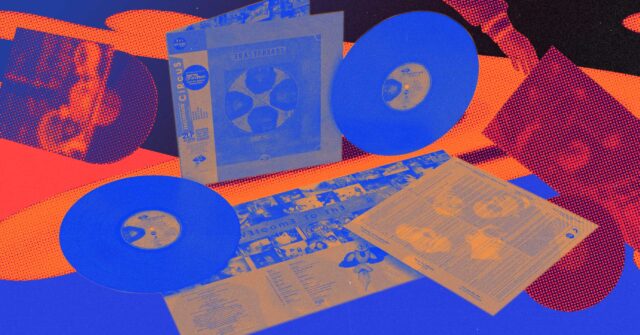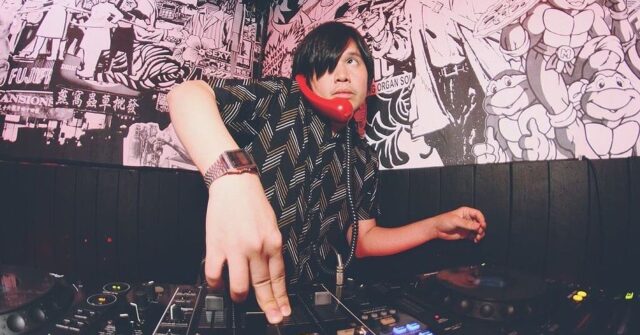Tarsius On Making Techno Music, the Growth Of the Filipino Electronic Scene, And What To Expect Next
Billboard Philippines sits down with Diego Mapa and Jay Gapasin on the growth of their electronic band over the years.

Tarsius: Courtesy of Locked Down Entertainment
Tarsius: Courtesy of Locked Down Entertainment
What happens when two alt-rock musicians come together to make house music? You get Tarsius, the electronic duo of Diego Mapa and Jay Gapasin. Tarsius is the brainchild of Mapa, who initially started it in 2009 as a moniker for his remixes. It was after he remixed indie act Outerhope’s “Twenty Years From Now” that he was invited to perform live.
Not one to be content with just performing with a sampler and mixer, he enlisted the help of Gapasin to play live drums. The two frequently talked about electronic music when Pedicab and the Lourd de Veyra-fronted Radioactive Sago Project would perform at the same gigs.
The result was a blend of techno and live drums — “organic electronic music,” the two call it — that made waves both locally and internationally. Tarsius have opened for a number of international acts such as Toro Y Moi, Japan’s Ningen OK, English electronic artist Four Tet, and many more. The band have also been invited to numerous local and international performances, including Malasimbo in Puerto Galera, Hong Kong’s Clockenflap, Japan’s Mai Asia Festival, and Thailand’s Wonderfruit, to name a few.
Their first releases in 2011 — “Deathless Gods” and “Nightlife” (which has been aired on BBC Radio 1 and Boiler Room) — were a result of their experimentation with different sounds.
“Medyo chopsuey siya” (It’s kind of a mixed bag), recalls Mapa. “Gusto namin i-explore lahat ng (We want to explore all) types of electronic music. May (There’s) hip-hop, indie dance, drum and bass, organic electronic, and more.”
However, the sound they leaned towards was the four-on-the-floor beat. Four-on-the-floor is a type of rhythm mostly used in disco and electronic dance music. It features a steady and uniform rhythm where the bass drum is hit on every beat.
“When we started performing live, pinakamasaya yung four-on-the-floor tracks namin” (Our four-on-the-floor tracks are the most fun to play), Mapa continues. This started to define their earlier material, where the pair produced music with the intention that Gapasin would play the drums live.
Their 2020 album Culture Cow featured a shift in Mapa and Gapasin’s approach to the Tarsius sound. After getting invited to a number of DJ gigs, they had to shift gears and make music that could both be played live and at a DJ set. The album is defined by more electronic beats compared to the traditional live drum sounds that they’ve done before.
There’s both a freedom and a challenge when crafting an electronic track. Without a traditional song structure like lyrics or sections, the duo have full creative control over how they co-create music. “Salitan lang hanggang binuo namin yung song“ (We go back and forth until we finish the song), Gapasin reveals. “Actually di namin alam kung saan siya pupunta…until naging solid na yung track” (We don’t know where the song is going until we feel that the track is solid).
It’s not just house music that they pull influences from. As fans of indie pop — “Kapag umiinom kami, pinapakinggan namin yung indie pop” (When we drink, we listen to indie pop), Mapa shares with a laugh — they like to contrast their heavier electronic tracks with a melodic and slow pop number to close the album. This is evident in “Star Island” from Culture Cow, which features Evee Simon (of July XIV, Spacedog Spacecat, and Megumi Acorda) singing lyrics that Mapa wrote.
As a duo that has seen all aspects of the Filipino music scene grow over the years, they share that the electronic music scene today is alive and thriving.
“Daming nangyayari” (A lot is happening), Gapasin shares. Mapa jumps in, saying, “Nainvite kami minsan sa mga (Sometimes, we get invited to) experimental electronic gigs where anything goes, like live electronics… DJ sets, after saying that, ang potent ng electronic scene” (The electronic scene is very potent).
While there are divisions in genres — for example, Tarsius doesn’t play in hip-hop sets because that’s not their niche — everyone can appreciate the different styles that are flourishing today.
What’s next for Tarsius? Mapa and Gapasin reveal that they have an remix of a Fables song coming out soon as part of a compilation called Sounds Nais. It’s lined up to be their first release in almost two years. As the years go by, they continue pulling from different styles of music in order to make electronic music that is fluid and expansive. It’s this openness to experiment that makes their music exciting to listen to, even almost 15 years after they first debuted.

